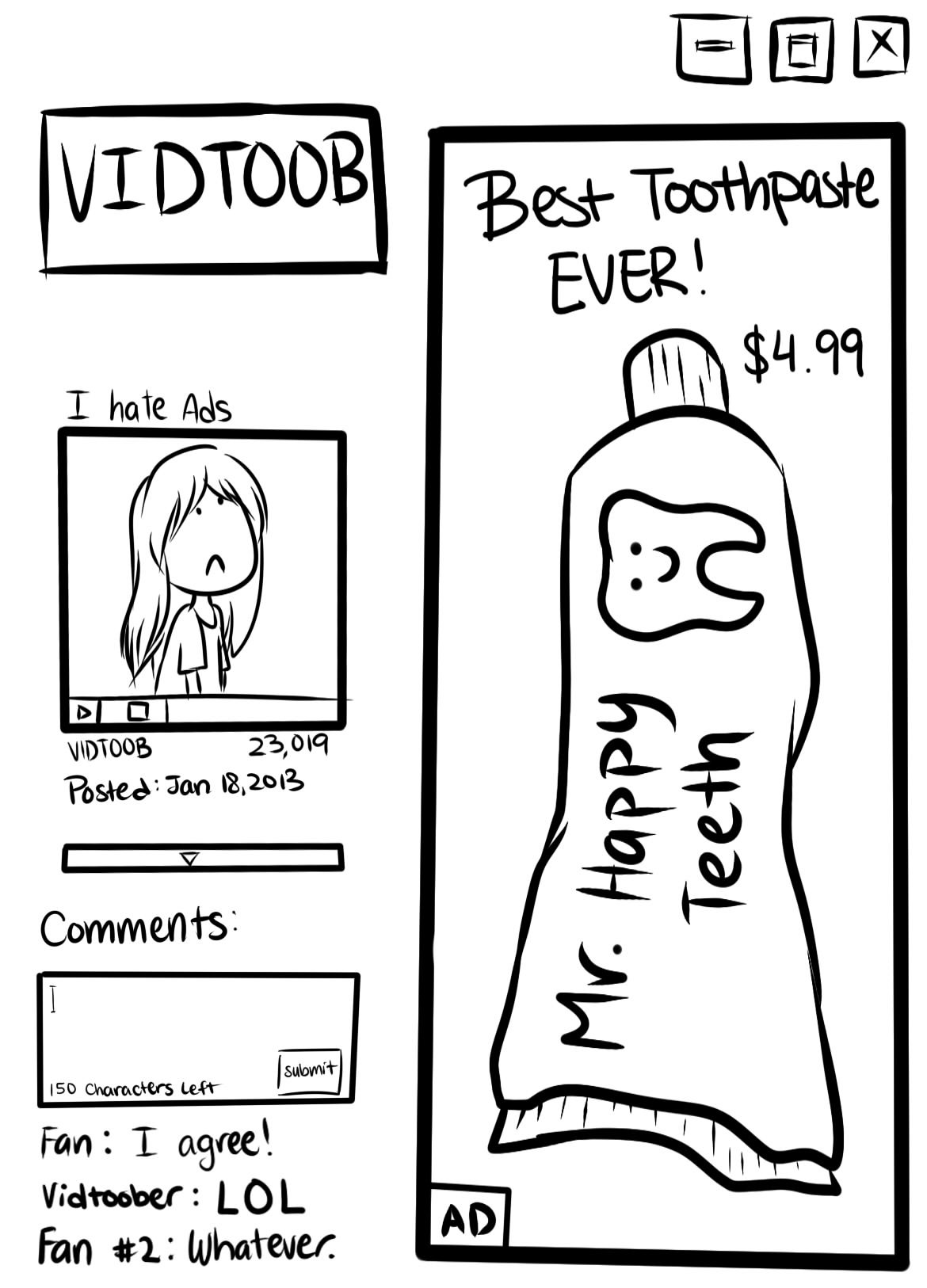Is advertising ruining the social media experience?

 Over the past decade, social media usage has grown exponentially. According to a study by the Pew Research Center, 92 percent of young adults currently use some form of social media. As this medium continues to expand, marketers are recognizing its potential as a platform for advertising. Such marketing began with discreet ads on the side of Facebook news feeds and have progressed to video advertisements on Youtube and promotional posts on Twitter. According to an industry report from the Social Media Examiner in 2012, 94 percent of marketers confirmed that they were using social media to promote their businesses. They utilized sites such as Facebook, Twitter, LinkedIn and YouTube to promote their brand.
Over the past decade, social media usage has grown exponentially. According to a study by the Pew Research Center, 92 percent of young adults currently use some form of social media. As this medium continues to expand, marketers are recognizing its potential as a platform for advertising. Such marketing began with discreet ads on the side of Facebook news feeds and have progressed to video advertisements on Youtube and promotional posts on Twitter. According to an industry report from the Social Media Examiner in 2012, 94 percent of marketers confirmed that they were using social media to promote their businesses. They utilized sites such as Facebook, Twitter, LinkedIn and YouTube to promote their brand.
The increased advertising detracts from the social media’s original objective; it was created to give people a place to interact and connect. Sites like Facebook and YouTube are designed for user-generated content, not for ads or sales. Worse, these ads are often repetitive.
“Though I know media websites [put out] commercials for logical reasons, watching the same ad about toothpaste [is] aggravating,” junior Stephanie Valasek said.
Since such websites are primarily used by young adults, businesses target this demographic. This allows marketers to play a prominent role in the lives of these teenagers. In an interview, Dr. Lars Perner, a consumer psychologist and assistant professor at University of Southern California, agreed.
“The key [to social media marketing] is repeated exposure. People get exposed to a lot of messages. All of these messages compete for attention and have a cumulative effect on the user,” Dr. Perner said.
Some of these advertisements can be especially harmful to teenagers. Starting September 2011, alcohol brands had the third highest consumer engagement rate on Facebook, according to Oxford Journals.
“What happens is not so much the messages of the advertisements, but the greater influence is that this portrays alcohol as being part of a mainstream society, something that is legal and acceptable,” Perner said. “It suggests to people that it may be socially acceptable to drink in these kinds of circumstances.”
While social media platforms are business ventures, they have become too focused on making money and ignore the detrimental consequences, harming social media.

